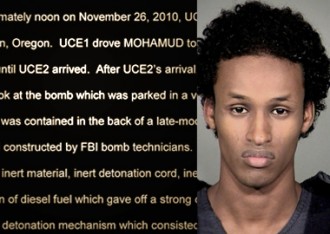How the Logic of Law Enforcement Leads to Spying on Muslims
The inverse of the argument that Islam ‘causes’ terrorism is the idea that Islam could solve the problem. Either way, it’s undue focus on the religion.
Read MoreThe inverse of the argument that Islam ‘causes’ terrorism is the idea that Islam could solve the problem. Either way, it’s undue focus on the religion.
Read MoreTime to get a grip.
Read MoreJoe Nocera’s casual use of the Tea Party’s “jihad.”
Read MoreNorway shooter wrote that feminists emasculate men and give Muslims a demographic advantage by controlling their reproductive lives.
Read MoreAn overview.
Read More
At the root of our desire for retribution is the wish that those who have wronged us feel the full weight of what they have done, suffering remorse proportionate in severity to the gravity of their crime. In short, we hunger for their redemption. And so, when the retributive impulse is finally satisfied, it naturally resolves itself into forgiveness. The darkness is lifted, because the evil—the dissociation from the good that inspired the crime—has been destroyed.
Read MoreForecasting the sad state of GOP presidential primary discourse.
Read MoreThe week in religion.
Read MoreBut why let facts get in the way of a good story?
Read More
By repeatedly asking what was in his heart, the FBI seems to have, not only sought to establish intent, but assumed that Muslim militancy is directly related to religion. Moreover, its operative assumption about religion was an implicitly Protestant one which conceived religion as an inward experience (faith) rather than the more Islamic conception of religion as the moral standard by which people ought to be judged. While the FBI was trying to ascertain the intent of Mohamud’s heart, Mohamud himself, by FBI’s own account of events, appears to have been preoccupied with creating sensational headlines.
Read More